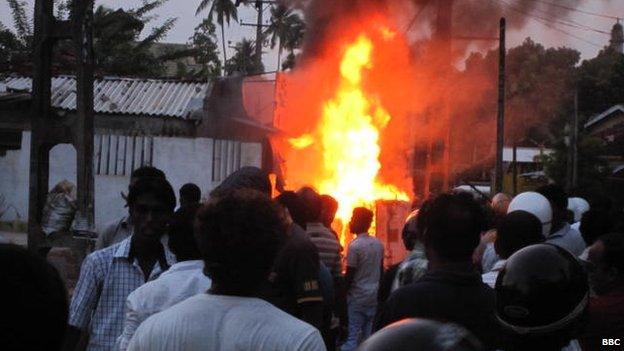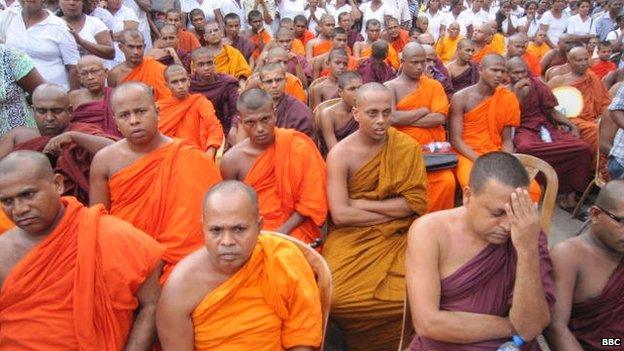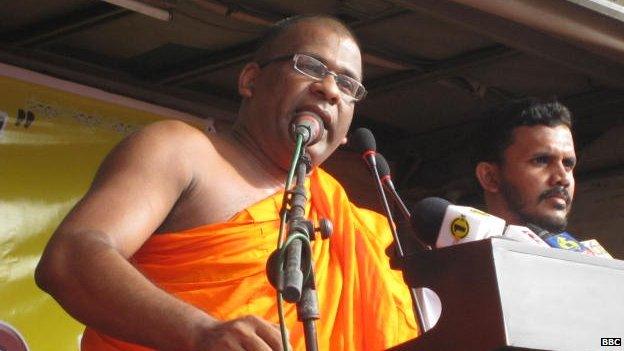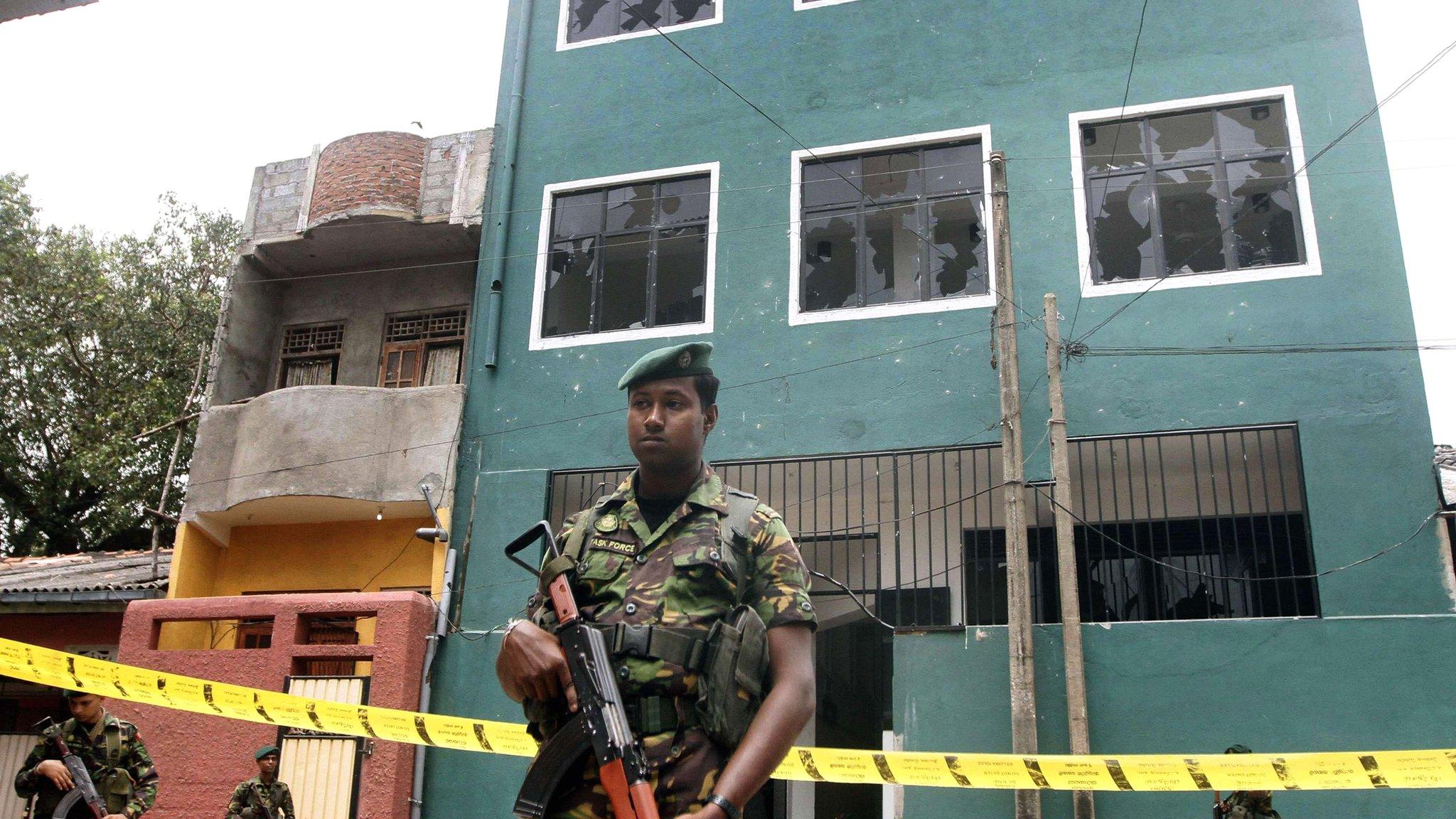Sri Lanka imposes curfew after Buddhist-Muslim clashes
- Published

Clashes broke out as Buddhists marched into Muslim populated areas
The Sri Lankan authorities have imposed a curfew on two southern towns to quell clashes between a hardline Buddhist group and Muslims.
The latest violence began after a Buddhist rally in Aluthgama.
Several people are reported to have been injured, shops burned and stones thrown at Buddhist marchers there.
The curfew was later extended to include mainly Muslim Beruwala. Muslims make up around 10% of Sri Lanka's predominantly Buddhist population.
Eyewitness accounts tell of Muslims being pulled off local buses and beaten. There are also reports of looting.

The rally by the Buddhist BBS took place in Aluthgama
The clashes are said to have begun after the rally held by the BBS, the Bodu Bala Sena, or Buddhist Brigade.
The gathering came three days after a smaller clash between Muslim youths and a Buddhist monk's driver.
'Act in restraint'
After its rally, the BBS marched into Muslim areas chanting anti-Muslim slogans, reports say, and the police used tear gas to quell the violence. Unconfirmed reports say security forces also used gunfire.
Witnesses say Muslim homes and a mosque were stoned.
The situation is confusing and there is an air of danger as violence has spread to several areas, a BBC reporter in Aluthgama says.

Some pro-Buddhist organisations oppose what they see as undue minority influence on government
Sri Lankan media appear to have decided not to report the violence, with sources saying outlets have received "orders from above".
President Mahinda Rajapaksa has announced an investigation, external.
"The government will not allow anyone to take the law into their own hands. I urge all parties concerned to act in restraint," he tweeted.
Correspondents say tension has recently been high between the two sides, with Muslims calling on the government to protect them from Buddhist-inspired hate attacks, and Buddhist accusing minorities of enjoying too much influence.
- Published11 August 2013

- Published2 May 2013
.jpg)
- Published13 January 2014
